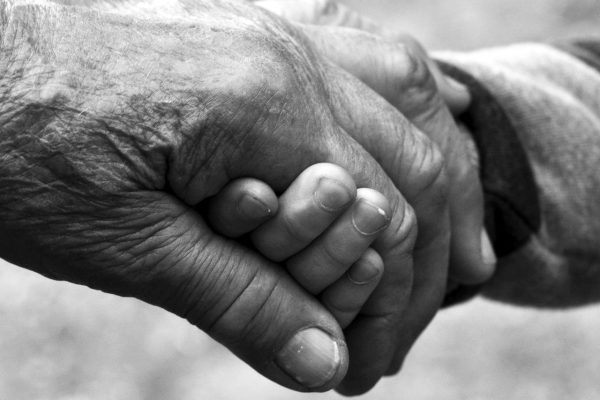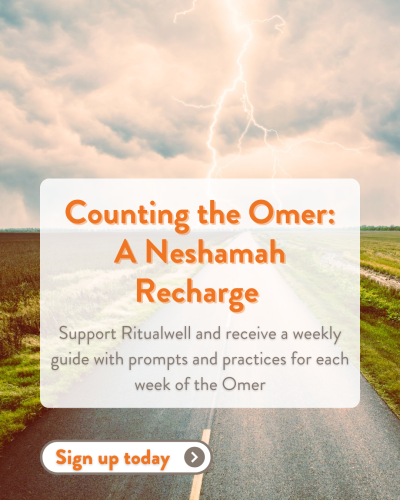For years, I have hosted and attended seders where, inevitably, a fight breaks out around the plagues. The controversy has centered around how we understand the plagues – are they a series of acts of resistance by an oppressed people, or a way to talk about modern-day-plagues of oppression like racism, militarism, or AIDS? In the story, the plagues are powerful magic wielded by the Divine to get our people free – but what if we do not have a conception of G!d as a being who punishes? And, are we making light of immense suffering if we sing silly songs about frogs jumping everywhere? Should we throw out the plagues completely, and instead learn to tell new stories about getting free that do not require the killing of anyone’s children?
Some of these ways of thinking about the plagues are more accurate to the way they actually appear in the story, and some have more resonance with us personally. This year, in the middle of a global pandemic which could be called a plague, there is powerful wisdom to be found in multiplicity. Take some time during Passover to discuss the meaning of the plagues with your loved ones. Which ways of thinking about plagues you are most drawn to at this time, and why?
1. Plagues as resistance.
The ancient Israelites, leaving Mitzrayim, took action in many ways in order to get free. They had to be creative as they faced continued refusal from those in power to let them go. Frederick Douglass, speaking in 1857 about ending slavery in the United States, famously said, “This struggle may be a moral one, or it may be a physical one, and it may be both moral and physical, but it must be a struggle. Power concedes nothing without a demand. It never did and it never will.” This year, the Passover story can inspire us to reflect on what are the new and old forms of struggle that we need, to get free. In this time of social distancing when it is not safe to hold a massive march in the streets or even canvass door-to-door, many of us are re-thinking these strategies. Our ways of resisting have changed, so we can re-think what will be effective, and how to be creative in our tactics. What ways of resisting are you most drawn to in this time? What are the plagues that you want to bring upon those in power, to make sure that everyone has paid sick leave, a roof over our heads, and the resources that we need to survive?
2. Plagues as Divine message.
This is a hard one, because thinking about plagues in this way often means thinking about a Gd who punishes – and in the present-day U.S. in particular, this is a framework often wielded by evangelical Christians against queer people. But we can think beyond Divine punishment here. The message that Hashem was sending, loud and clear, with the Biblical plagues was, “end slavery and let my people go.” The part of COVID-19 that is this type of plague, is not a punishment from a Divine force, but an experience that comes with a transformative, life-giving message. This does not mean there is no harm, it means pausing for a moment to listen for the positive lessons from this pandemic. Some lessons might be: Slow down and connect with the grass that grows through the sidewalk just outside your apartment. Listen to what disabled and chronically ill people have been talking about for years. Care for your neighbor and allow yourself to come into deeper interdependence. Recognize that we are all already interdependent. Massive action by individuals and governments is possible on a global scale, which means massive action against climate change is also possible. What are the lessons that we – humanity, our communities, and you personally – are learning at this time, or that we have an opportunity to learn?
3. Plagues as large-scale, harmful destruction.
Plagues affect so many innocent people, both in the Biblical world and in our present-day situation: when the rivers ran with blood, Pharaoh was not the only one without water to drink. We can name COVID-19 as a modern-day plague, and also name the institutions that are to blame and that benefit. Thinking about pandemics as plagues allows us to reflect on the systems and structures of power that make pandemics worse, and for whom. It calls to mind that this is not the only plague that has happened or is happening: so many other pandemics and structures harm and kill people, like AIDS, the 1918 flu epidemic, Ebola, the US immigration system, policing and mass incarceration. A global pandemic is a reminder of our interdependence. For the plagues that do not impact you directly, removing drops of joy from your cup can be a commitment to take action. For the structures that do impact your life directly, you can take an extra moment to savor the sweetness of the fruit of the vine on your tongue, this taste of a night of freedom, a respite amid so much danger.
4. Imagining a world beyond plagues.
The murder of innocent children, or perhaps the drowning of an army in a river, is not how we want to get free. Telling the Passover story is an opportunity to envision a world where everyone has what they need to survive and thrive, in harmony with a healthy planet, and the collective governance or mutual aid structures of our wildest dreams. We can envision a world where the stories we can tell our loved ones are about how to take care of each other, not how we have to exert pressure on people whose power looms over us, in order to survive. Now is a time where fear floats in the air, and there is so much that is unknown about how we will make it through. We can take some time to move out of the present moment and imagine the world that we hope we can make it to instead – no matter how unrealistic it seems. As poet Martín Espada writes, “If the abolition of slave-manacles began as a vision of hands without manacles, then this is the year.” In this time of constriction, take a few moments to open up, breathe deep, and remember what a world worth fighting for feels like. Once you have the picture in your mind: What is a small act of kindness you can take now, to make this world more possible?













